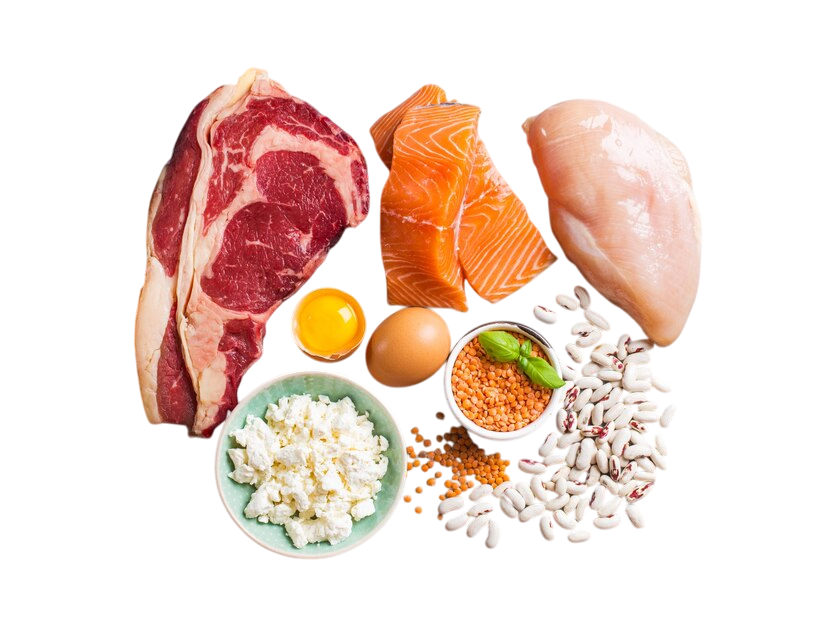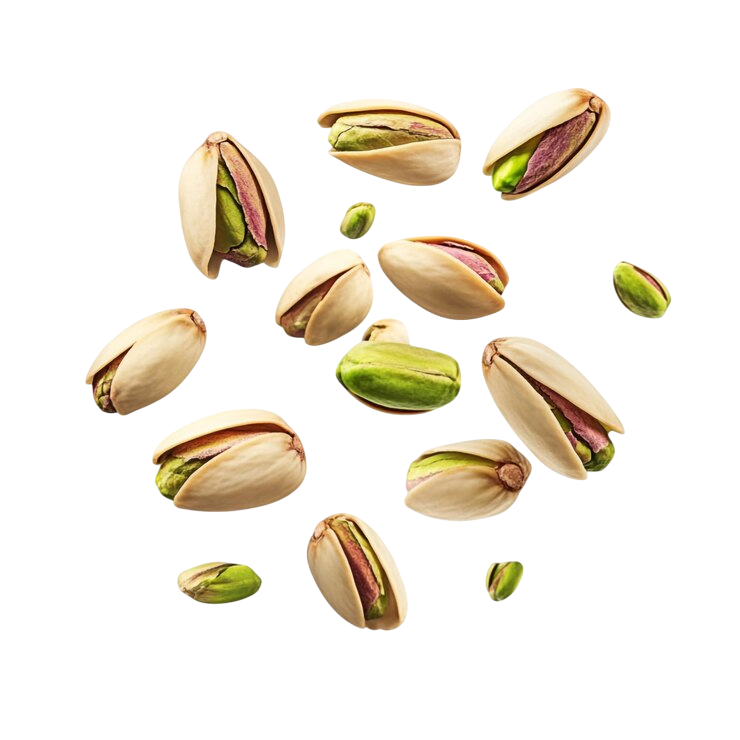Protein
What is Protein?
As a macronutrient, protein is one of the larger components of the diet. Protein plays an important role in the growth, repair and maintenance of our bodies including our bones and muscles as well as being an energy source. High protein foods can also contain beneficial micronutrients, such as iron which is found in meat and calcium found in dairy.
The guidelines for the amount of protein the body requires are based on our bodyweight; for adults this is 0.75g of protein per kilogram of body weight. However, this guideline can increase with physical activity as the more protein will be needed for the repair and growth of muscles.

What is the role of Protein?
Protein is an essential part of muscle and bone tissue and is a core component of important cell structures. Protein is required for:
- Tissue repair and growth
- Required for enzyme activity, immunity, cell signals and muscle contractions
- protein is important to maintain the normal function and development of our organs, immune system and our blood’s oxygen carrying capacity.
What foods contain Protein?
Proteins contain amino acids which can be seen as ‘building blocks’ for body tissues. Nine of the twenty amino acids are considered essential, as these can only be sourced through our dietary intake. Not all amino acids are present in all foods, therefore it is important to eat a range of different protein containing foods.
The Eatwell Guide recommends high protein sources such as beans, peas, lentils, meat, fish, nuts and eggs. It is recommended to choose lower fat options of high protein foods, such as lean meats, where possible, whilst also trying to reduce the amount of red and processed meat consumed. Protein is also found in dairy products such as milk and yogurt. Dairy free products can also contain protein but these tend to be lower in protein than their equivalents.

Further Resources:
- Nutrition information about protein and plant-based protein
- Sport and exercise | British Nutritional Foundation
- Vegetarian and vegan diets | NHS inform
- The vegetarian diet – NHS
References:
British Nutrition Foundation. Protein. Available at: https://www.nutrition.org.uk/nutritional-information/p
rotein/ [Accessed 23 Aug 2024].
American College of Sports Medicine (2016). American College of Sports Medicine position stand. Nutrition and athletic performance. Medicine and Science in Sports and Exercise, 41(3). https://doi.org/10.1249/MSS.0b013e31890eb86
Written By:
Lucy Clarkson, SENR Nutritionist and Database Support, myfood24.











 Back to knowledge library
Back to knowledge library